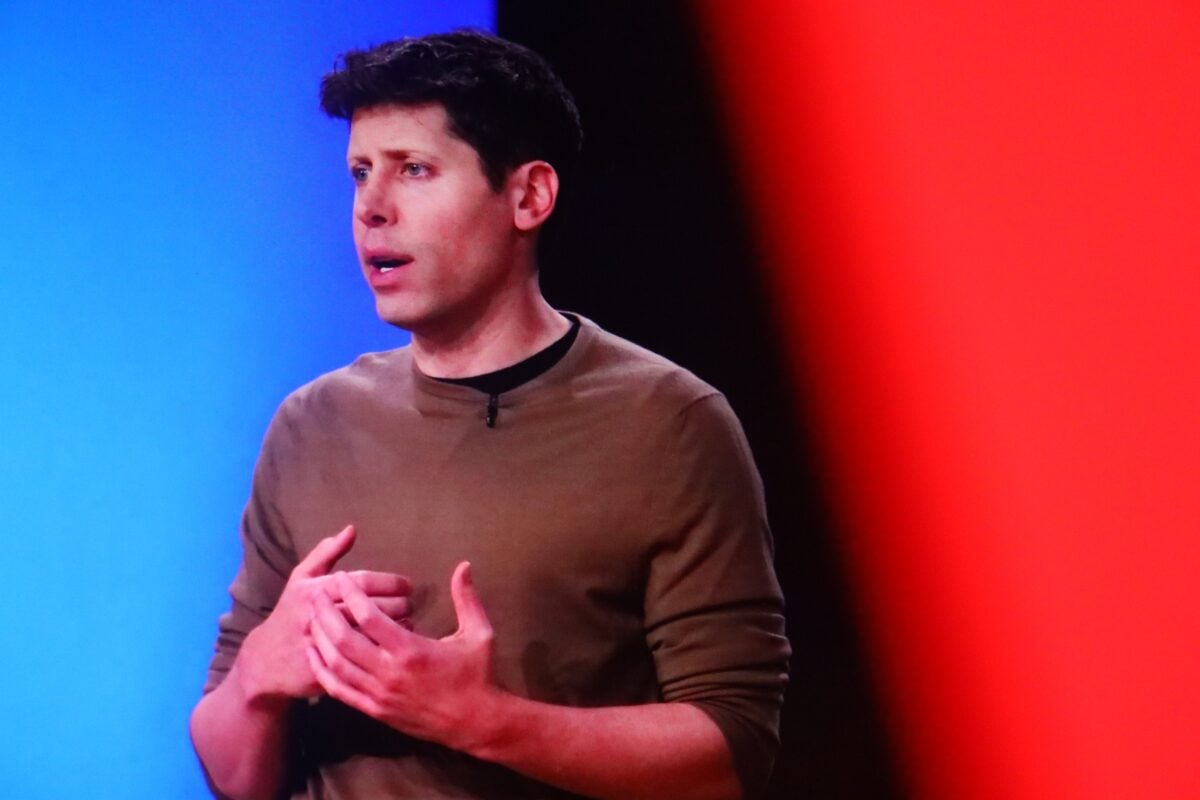TLDRs;
- Sam Altman warns that AI may be in a bubble, comparing current hype to the dot-com boom.
- Joe Tsai, Ray Dalio, and Torsten Slok echo concerns over high valuations and speculative investment.
- Analysts remain divided, with some saying fundamentals in AI and semiconductors support long-term growth.
- Despite concerns, OpenAI pushes ahead with GPT-5, a $500B valuation plan, and massive infrastructure spending.
The rapid rise of artificial intelligence has made it the hottest topic in global markets, but not everyone is convinced that the momentum is sustainable.
A growing chorus of influential business leaders, including OpenAI CEO Sam Altman, Alibaba co-founder Joe Tsai, and Bridgewater Associates founder Ray Dalio, have voiced concerns that the AI industry may be entering bubble territory.
Altman, whose company is at the heart of the AI boom, acknowledged that while the technology is transformational, investor enthusiasm could be outpacing reality.
“Are we in a phase where investors as a whole are overexcited about AI? My opinion is yes,” he said recently. “Is AI the most important thing to happen in a very long time? My opinion is also yes.”
Echoes of the Dot-Com Crash
Contents
Altman drew comparisons between today’s AI excitement and the dot-com boom of the late 1990s. That era saw internet companies soar to massive valuations before the bubble burst, wiping out trillions in market value.
The Nasdaq lost nearly 80% of its worth between 2000 and 2002 as many startups failed to generate revenue or profits.
Torsten Slok, chief economist at Apollo Global Management, has echoed Altman’s warning, suggesting the current AI bubble may already exceed the scale of the internet bubble. He pointed to valuations among the largest companies in the S&P 500, which are far above historic norms.
Mixed Signals From Analysts
Not everyone agrees that AI is in a bubble. Ray Wang, CEO of Constellation Research, argued that while there are speculative elements, the overall fundamentals remain solid.
“From the perspective of broader investment in AI and semiconductors, I don’t see it as a bubble,” he told CNBC. “The fundamentals across the supply chain remain strong, and the long-term trajectory of the AI trend supports continued investment.”
Still, Wang acknowledged that an influx of speculative capital is chasing companies with weak fundamentals, leading to pockets of overvaluation. This dual reality highlights the complexity of evaluating AI’s long-term investment case.
OpenAI’s Balancing Act
Despite cautionary words, OpenAI is pressing ahead with bold expansion plans. Earlier this month, the company launched GPT-5, though some critics noted it lacked the intuitive feel of earlier models, leading OpenAI to restore access to GPT-4 for paying customers.
Altman has also suggested that the term “artificial general intelligence,” or AGI, is losing relevance, signaling a more cautious outlook than his earlier predictions.
Financially, OpenAI is preparing a secondary stock sale expected to value the company at around $500 billion, following a $40 billion funding round in March that gave it a $300 billion valuation, the largest in private tech history. Altman has indicated that OpenAI could spend trillions on data center buildouts in the near future, underscoring the massive capital requirements of scaling AI infrastructure.
Investor Optimism vs. Skepticism
For now, investor confidence in AI remains high, even as industry leaders warn of overexcitement.
Joe Tsai, Ray Dalio, and other influential figures caution that markets must distinguish between truly groundbreaking innovation and speculative hype.
Whether AI follows the trajectory of the dot-com era will likely depend on how quickly companies can turn innovation into sustainable profits.


